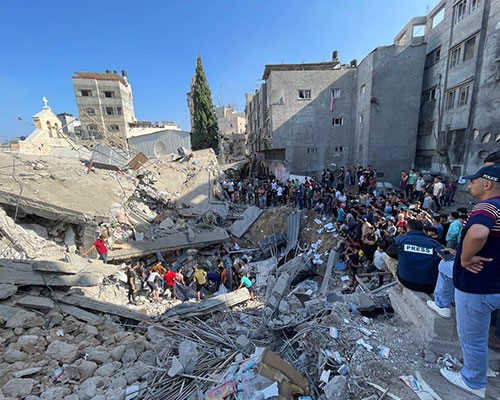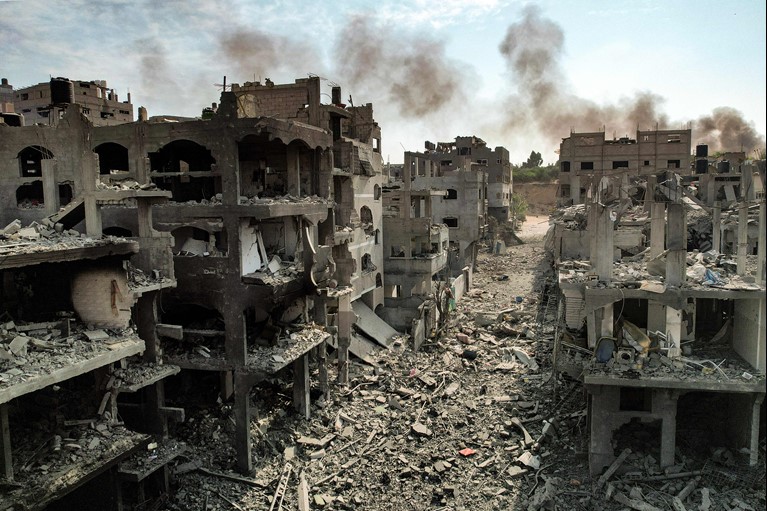Six months of war in Gaza
05 Apr 24
April 7 marks six months since the terrorist attacks which sparked the war on Gaza. During those six months, the world has looked on in horror as the Israeli military has ceaselessly bombarded the civilian population of Gaza, leaving over 30,000 dead including over 13,000 children.
We continue to stand in solidarity with the civilians of Gaza and call for an immediate and permanent ceasefire and unimpeded access to humanitarian workers. The people in Gaza must be protected, and the violence and suffering must end.

What is the situation in Gaza today?
Continuous bombings and military offensives combined with the destruction of vital infrastructure and lack of access to medical supplies, clean water and food has made Gaza one of the deadliest places in the world for civilians.
90% of the population – around 2 million people - are now facing acute food insecurity as a consequence of border closures, restrictions and security concerns hindering the supply of food. There has been a steep rise in malnutrition as the population teeters on the brink of a man-made famine.
1.4 million people have been pushed into the Rafah governate, supposedly the last safe place in Gaza, only to face the prospect of continued bombing and military offensives in the area.
International funding to UNRWA, the only agency delivering large-scale aid to Palestinians was interrupted due to accusations around the conduct of a handful of staff. While some countries like Australia have since restored funding, it is nowhere near previous levels and is indicative of the hugely challenging situation currently facing aid organisations.
Aid workers are also facing a terrible situation with many organisations, including the UN and Caritas Jerusalem, having lost staff members. The recent loss of an Australian aid worker for World Central Kitchen has again brought home the cost of this war.
Governments, aid and legal organisations around the world continue to condemn the actions of the Israeli military and call for an immediate ceasefire, the protection of civilians, supply of aid and to ensure that legal obligations to prevent genocide are met.
What have we done to help?
Your generous support has helped to bring hope to families facing the unthinkable. Working with our partner CRS, we have been able to provide multi-purpose cash assistance to over 127,000 people, emergency shelter for over 1,500 people, bedding supplies to more than 17,000 people, and food parcels to over 22,000 people.
In Australia, we have been working with other aid organisations and speaking directly to government to demand an immediate ceasefire and the protection of civilians.

What will happen next in Gaza?
While international pressure for a ceasefire continues to mount, the Israeli government has given no indication that it plans to end hostilities, and Hamas has given no indication that they will return the remaining hostages in the near future. The situation will continue to be dire for civilians. The work of aid organisations in the region has never been more vital. We will continue to work with our partners to deliver lifesaving aid, and to advocate for our government to do more to ensure a ceasefire is reached. Human suffering must stop.